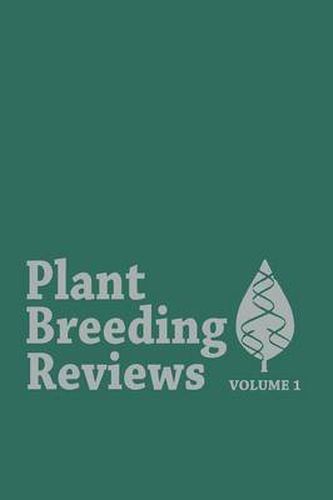Readings Newsletter
Become a Readings Member to make your shopping experience even easier.
Sign in or sign up for free!
You’re not far away from qualifying for FREE standard shipping within Australia
You’ve qualified for FREE standard shipping within Australia
The cart is loading…






This title is printed to order. This book may have been self-published. If so, we cannot guarantee the quality of the content. In the main most books will have gone through the editing process however some may not. We therefore suggest that you be aware of this before ordering this book. If in doubt check either the author or publisher’s details as we are unable to accept any returns unless they are faulty. Please contact us if you have any questions.
Plant breeding, the domestication and systematic improvement of crop species, is the basis of past and present agriculture. Our so called primitive progenitors selected practically all our present-day crop plants, and the improvement wrought through millenia of selection has so changed some of them that in many cases their links to the past have been obliterated. There is no doubt that this ranks among the greatest of human achievements. Although plant breeding has been a continuous empirical activity for as long as humans have forsaken the vagaries and thrill of hunting for the security and toil of agriculture, genetic crop improvement is now very much of a twentieth-century discipline. Its scientific underpinnings date to the beginning of this century with the discovery of Gregor Mendel’s classic 1865 paper on the inheritance of seven characters in the garden pea. If any science can be traced to single event, the best example is surely found in the conception of modern genetics that appears in this single creative work. The relationship of plant breeding progress to advances in genetics has become closely entwined. Mendel himself was concerned with crop improvement and worked on schemes for apple and pear breeding. Plant breeding also has claims on other scientific and agricultural disci plines-botany, plant pathology, biochemistry, statistics, taxonomy, entomology, and cytology, to name a few-and has also impinged on our social, ethical, economic, and political consciousness.
$9.00 standard shipping within Australia
FREE standard shipping within Australia for orders over $100.00
Express & International shipping calculated at checkout
This title is printed to order. This book may have been self-published. If so, we cannot guarantee the quality of the content. In the main most books will have gone through the editing process however some may not. We therefore suggest that you be aware of this before ordering this book. If in doubt check either the author or publisher’s details as we are unable to accept any returns unless they are faulty. Please contact us if you have any questions.
Plant breeding, the domestication and systematic improvement of crop species, is the basis of past and present agriculture. Our so called primitive progenitors selected practically all our present-day crop plants, and the improvement wrought through millenia of selection has so changed some of them that in many cases their links to the past have been obliterated. There is no doubt that this ranks among the greatest of human achievements. Although plant breeding has been a continuous empirical activity for as long as humans have forsaken the vagaries and thrill of hunting for the security and toil of agriculture, genetic crop improvement is now very much of a twentieth-century discipline. Its scientific underpinnings date to the beginning of this century with the discovery of Gregor Mendel’s classic 1865 paper on the inheritance of seven characters in the garden pea. If any science can be traced to single event, the best example is surely found in the conception of modern genetics that appears in this single creative work. The relationship of plant breeding progress to advances in genetics has become closely entwined. Mendel himself was concerned with crop improvement and worked on schemes for apple and pear breeding. Plant breeding also has claims on other scientific and agricultural disci plines-botany, plant pathology, biochemistry, statistics, taxonomy, entomology, and cytology, to name a few-and has also impinged on our social, ethical, economic, and political consciousness.